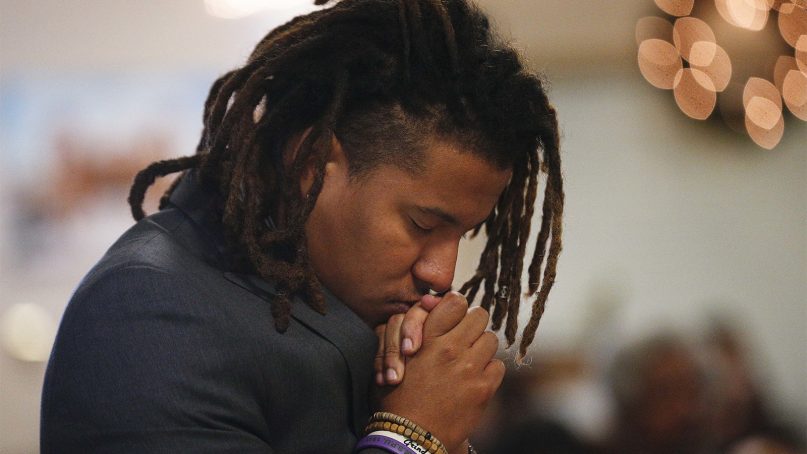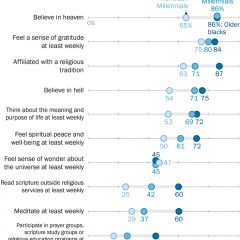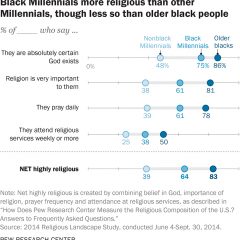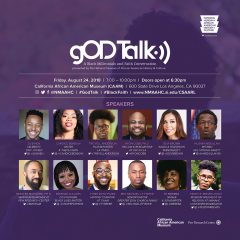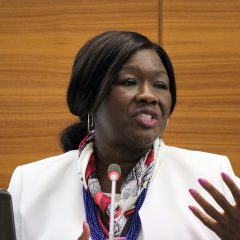(RNS) — Devi Brown, a Los Angeles-based radio personality and author, said she prays and talks to God regularly.
But then she adds: “I have found absolutely beautiful life-changing things in the Christian faith, in the Hindu faith, in Buddhism. So, for me, I believe in being Christ-like, being kind, being of service so I kind of let that lead who I am.”
Like other African-American millennials, Brown, 33, author of “Crystal Bliss: Attract Love. Feed Your Spirit. Manifest Your Dreams,” is charting her own course when it comes to spirituality.
On Friday (Aug. 24), she’ll explain her faith at a pilot event in Los Angeles that explores new ways black people born between 1981 and 1996 are embracing religion and spirituality at a time when the black church is no longer the central organizing force for some African-Americans.
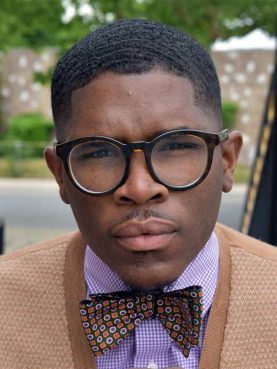
Teddy Reeves. Photo by Jermaine Richards
The new series, called “gOD-Talk: A Black Millennials and Faith Conversation,” is a joint project of the Smithsonian’s National Museum of African American History and Culture and the Pew Research Center.
Teddy Reeves, a specialist in the museum’s Center for the Study of African American Religious Life, said the project’s nontraditional treatment of the word “God” is intentional, in hopes that the conversations will include blacks with Judeo-Christian perspectives, adherents of Islam and African spirituality, and humanists and atheists.
“The ‘g’ is allowing everyone to come to the table,” said Reeves, 31, who is set to moderate the discussion for which more than 700 people have registered. “We’re really kind of transgressing traditional orthodox boundaries of what we consider sacred.”
Besheer Mohamed, a Pew senior researcher, said African-American young adults stand out from others in their age group as well as their racial group.
“Black millennials are sort of at the intersection of two broad patterns of American religiosity,” said Mohamed, who plans to present research as the project holds events across the country. “Black millennials on average are more religious and also more spiritual than other millennials and less religious and less spiritual than other blacks.”
While fewer than 4 in 10 African-American millennials say they attend services weekly, far more — 61 percent — say religion is very important to them. Six in 10 of them also say they pray daily and “feel spiritual peace and well-being at least weekly.” More than a third meditate at least once a week.
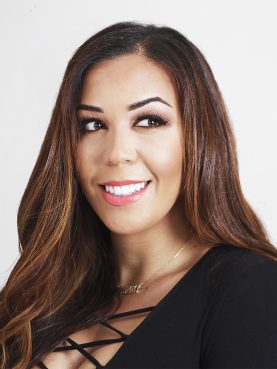
Devi Brown. Photo by King David Photography
Brown, who did not grow up in a religious household but has enjoyed attending Christian churches since high school, uses crystals for meditation, explaining that they don’t replace God but instead serve as a way of “being grounded and being connected to my source, which is the earth that God created.”
Reeves, who is also an ordained minister of the Progressive National Baptist Convention, said the Pew findings reflect both a historical connection to the divine for African-Americans that dates to the time of slavery and the influence of rising secularism within the “brunch culture” of millennials.
Some of the disengagement may come from a sense of frustration that traditional black churches are not sufficiently addressing justice issues that are a priority for many of these young adults — LGBTQ rights, violence in urban African-American communities and inclusion of women’s ordination and leadership, he suggested.
Black millennials also have more secular and spiritual options, and often no longer keep weekend worship services as standing appointments on their calendars.
“Whether it is protesting, whether it is feeding the homeless, whether it is creating programs and nonprofits,” Reeves said, the “definition of sacredness” is expanding.
“Moving forward, I wonder what that means for our traditional religious spaces.”
Black church leaders are mulling that too. It was one of the questions raised during a summit of the Seymour Institute for Black Church and Policy Studies held at the Museum of the Bible in Washington on Tuesday.
One participant was applauded when she implored pastors to train the younger people in their congregations and give them something to do.
“These young people are leaving the church,” she warned. “They don’t even believe in Jesus anymore. They call him Baby J.”
- By a variety of measures, black millennials are more religious than others in their generation. Graphic courtesy of Pew Research Center
- Black millennials are more religious than other millennials, though less so than older black people. Graphic courtesy of Pew Research Center
- Informational poster for “gOD-Talk: A Black Millennials and Faith Conversation.” Poster courtesy of Smithsonian’s National Museum of African American History and Culture
- The Rev. Beverly Frazier, a fellow of the University of Pennsylvania and pastor of a New York City church, speaks at a summit of the Seymour Institute for Black Church and Policy Studies, held at the Museum of the Bible on Aug. 21, 2018. RNS photo by Adelle M. Banks
The Rev. Beverly Frazier, a fellow of the University of Pennsylvania who pastors Morning Star Church in New York’s Harlem neighborhood, told summit participants her church recently put up colored lights and held a concert for several hours.
“That was the largest service we’ve had since I’ve been at the church,” she said, as she spoke on research about the value black churches add to neighborhoods. “For four hours, people just coming and going. Why? ’Cause you have to meet the needs. You have to be relevant.”
RELATED: Black churches bucking the trend of decline
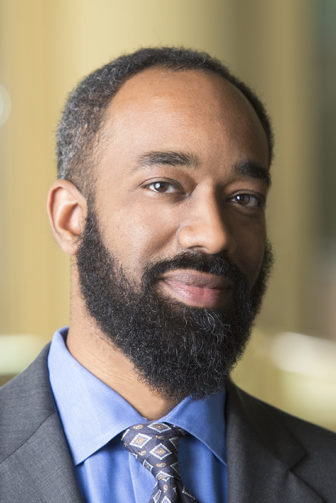
Besheer Mohamed. Photo courtesy of Pew Research Center
Pew researchers found that 53 percent of African-Americans said they were affiliated with historically black denominations in 2014, but significantly fewer (41 percent) of black millennials claimed such a tie. Mohamed said the share of black millennials who say they are non-Christian has increased from 3 percent in 2007 to 5 percent in 2014.
There is no Pew data available for the percentage of black millennials who fall into the “spiritual but not religious” category.
But Mohamed said “there is no reason to assume black millennials would not follow the broader societal trend of more Americans saying they’re spiritual but not religious.”
He is scheduled to be a panelist at the California African American Museum event along with other scholars and people of a variety of faiths, including Christians, a Muslim, a former Buddhist and a practitioner of Ifa, a Nigerian spiritual tradition. Other gOD-Talk events, to be held through 2020, are planned for Atlanta, Chicago, Dallas, New York and Baltimore.
